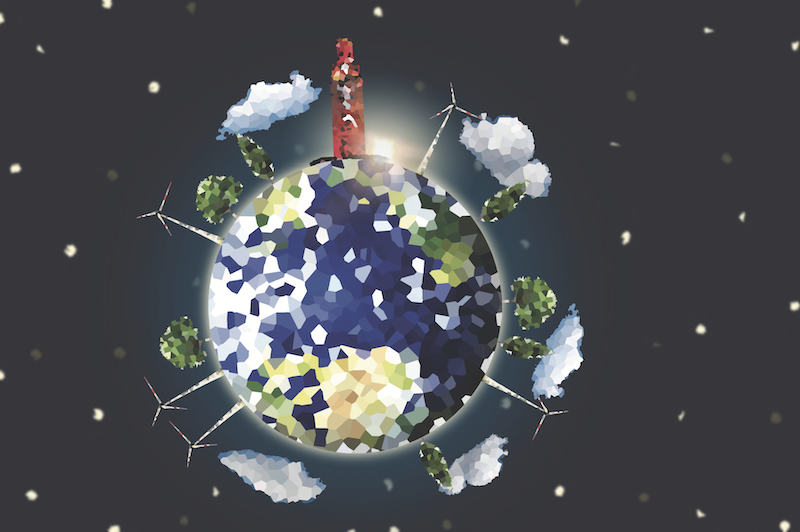How to prevent the next pandemic
September 23, 2020
From an apocalyptic pandemic to a historic hurricane season, this year’s many misfortunes seem like an inescapable streak of bad luck. However, they could have been prevented.
The devastating events of 2020 are the result of decades of large-scale environmental degradation. If we don’t treat our current status quo like a wake-up call to live more sustainably, things will only get worse.
It is crucial that the UT community recognize and limit its complicity in behaviors that damage the environment. To encourage students to do their part in preventing future public health disasters and the social injustices that accompany them, UT must urge students to participate in sustainability initiatives.
“Planet Earth is still going to be here,” said Stuart Reichler, associate professor and environmental researcher. “There’s a big question about whether or not we’re still going to be here.”
The series of calamities we’ve experienced this year validate Reichler’s concern. As heat records shatter, fire tornadoes scorch the West Coast and freak storms form at unprecedented rates, climate change is undoubtedly threatening the health and safety of the American public.
In fact, the deadliest calamity of all –– the emergence of viruses such as COVID-19 –– stems from unsustainable practices like deforestation that put humans in close contact with disease-ridden wild animals.
Educating ourselves about our responsibilities is the best way to avoid future public health crises.
Reichler and Srikari Punyamurtula, environmental science junior and co-leader of the Environmental Justice Collective, agree that all students should learn about humans’ impact on the environment and the on-campus initiatives that exist to reduce that negative impact.
These topics are important for all students to learn about because of the far-reaching impact of environmental degradation. For example, Punyamurtula explained that pollution-related health risks disproportionately plague marginalized communities.
“One thing a lot of people are only realizing now, because of the resurgence of the Black Lives Matter movement, is that environmental racism (exists) in many forms,” Punyamurtula said.
The movement has highlighted how industrial waste harms racial minorities.
“We find a lot of industrial power plants and gas stations located near communities of color, and that really sets them back in terms of health,” Punyamurtula said.
Preexisting respiratory diseases coupled with exposure to toxic waste –– both results of pollution –– exacerbate the symptoms of COVID-19 among people of color. As a result, the virus’ fatality rate in these communities continues to rise.
Clearly, the root cause of supposedly natural disasters and many forms of subsequent social injustice can be boiled down to a single, man-made phenomenon: environmental deterioration.
While UT can definitely do more to make sure students understand the impact of their actions on the environment, students must take responsibility for boosting their environmental awareness by voluntarily participating in eco-friendly initiatives.
Like Punyamurtula, Reichler encourages students to go beyond the classroom to further counteract this issue.
“Should the University take a more active role in educating people about the environment? Yes,” Reichler said. “But students should work on their own on getting educated and filling in whatever gaps they may feel like they have.”
UT currently sponsors countless sustainability orgs, initiatives and resources dedicated to spreading environmental awareness. I urge my peers to virtually visit the Campus Environmental Center and the Student Guide to Sustainable Living to learn about reducing their impact on the environment.
As students at a University that encourages us to change the world, we all have to do our part to restore the environment. If we don’t, another 2020 awaits us.











